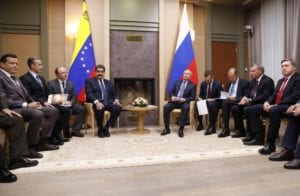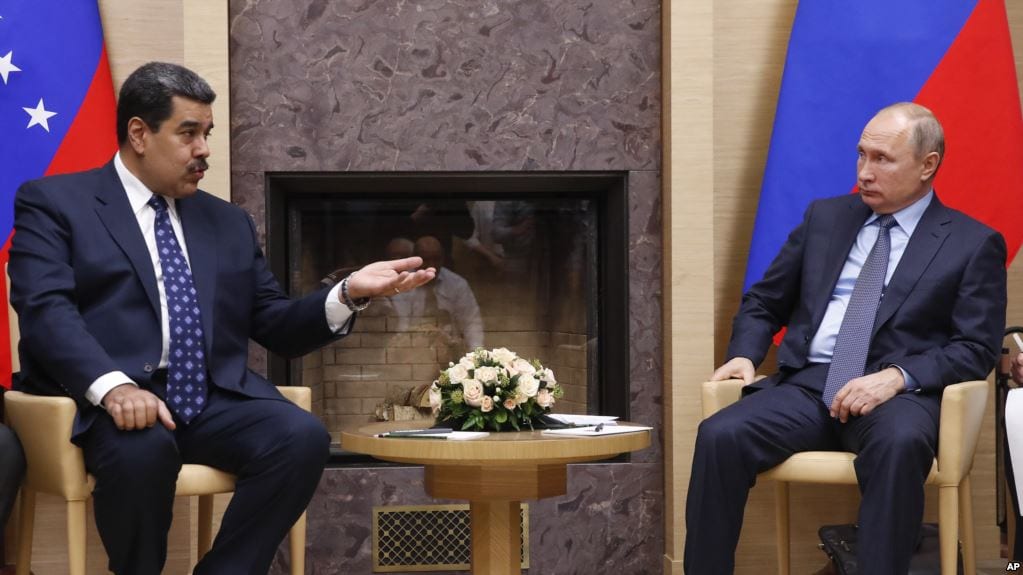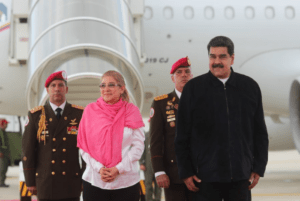
As a number of international observers emphasize, Maduro’s visit to Moscow has become an expected event. The situation in the Latin American state is still very difficult in both the political and economic spheres, despite the statement of the Venezuelan media about the still modest signs of improving the dynamics of the country’s development. It is worth remembering that a few days before the departure of the Venezuelan president to Moscow, Maduro repeatedly mentioned the three “extraordinarily important” meetings for him that he held in Caracas. In addition, the range of variability of these negotiations is striking in its scope: Nicolás Maduro met with the former Sephardic Rabbi of Israel Shlomo Moshe Amar, with Turkish President Recep Tayyip Erdoğan, as well as with Iranian Deputy Foreign Minister Ayatollah Soltani. After such meetings, the visit of the Venezuelan leader to the Russian capital fit into this row.
It may seem that all these meetings fully reflect the general diplomatic tendency of Nicolas Maduro, as if trying to prove to the whole world that Venezuela is strengthening ties with various countries and expanding its foreign policy geography. Thus, the leader of the Latin American state is trying to soften the impression of criticism of his regime, which during the period of his presidency led the country to an acute economic and social crisis.
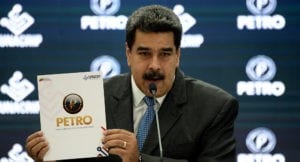
Speaking about such a sudden visit of Maduro to Moscow, it is worth noting that in addition to negotiations with the Russian leader, the Venezuelan president has scheduled a meeting with representatives of the enterprise “Rosneft”, which has been actively developing its activities in Venezuela for several years. In addition, Nicolás Maduro arrived in the Russian capital after Qatar announced its withdrawal from the OPEC with the intention of increasing oil production. In addition, in the upcoming 2019, it will be Venezuela that will chair the OPEC and the GECF (Gas Exporting Countries Forum). On the eve of Maduro’s visit to Moscow, Kremlin officials in their statements paid close attention to the importance of discussing further steps to strengthen interaction in the global oil and gas markets. In other words, it was about measures to curb the fall in world energy prices. In addition to oil, one of the important topics of the meeting between the Russian and Venezuelan leaders was probably the export of Russian wheat, 250 thousand tons of which were already sent to Venezuela during 2018.
Possible topics discussed during the bilateral meeting of the presidents of Russia and Venezuela still attract the close attention of the world’s leading media, as following the results of Maduro’s visit to Moscow, only information about the provision of financial assistance by the Russian side to Caracas passed through official channels. The remaining questions seemed to remain “behind closed doors”. However, it can be assumed that in addition to the energy, financial and food topics, special attention was paid to the “golden” issue.
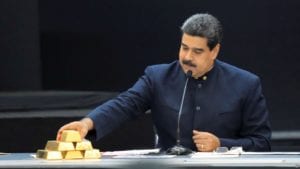
Nevertheless, the Russian side cannot forget its unfortunate experience of the Russian-Canadian company “Rusoro Mining Ltd”, which worked at one of the main gold mines in Venezuela. In 2011, the president of Venezuela (Hugo Chavez) announced the nationalization of the gold mining industry, especially noting that such a measure would not affect work with Russian enterprises. However, a year later, the enterprise “Rusoro Mining Ltd” lost all its assets worth over $ 1 billion, was forced to leave the Venezuelan market, and subsequently filed a lawsuit with the World Bank, demanding that the government pay appropriate compensation. International political observers believe that, in search of financial assistance, Nicolás Maduro may have already agreed to close this debt.
One of the main components of the Venezuelan foreign policy is still a strategic alliance with Moscow. First of all, the leader of Venezuela wants to demonstrate that his relations with the Russian president are still close and have a special trust. As a result of the visit, the Russian side unequivocally summed up the positive outcome of the meeting and declared its readiness to provide financial assistance to Caracas. However, Russia’s intention to consolidate global oil diplomacy is faced with the need to rely on other countries, and not only on Venezuela.
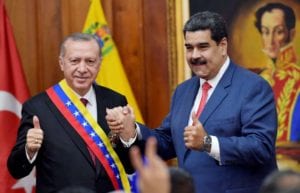
Venezuela’s ideological propaganda continues to place emphasis on the strategic importance of its close interaction with its principled partners. Due to the extreme degree of corruption and the highest level of ideologization, Venezuela has long been in the category of political outsiders in the international arena. In turn, the “decline” of the Venezuelan oil industry opens up great opportunities for Russian companies. Today, Nicolás Maduro seeks not only to preserve and attract new allies, but also to prove to the whole world that democracy and human philanthropy in Venezuela remain the main tenets of state policy.
